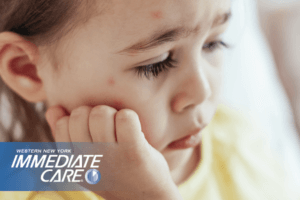
Measles is a highly contagious viral disease that can lead to severe complications, especially in young children. With outbreaks still occurring in different parts of the world, it’s important for parents to take proactive steps to protect their children. Here’s what you need to know about measles and how to keep your little one safe.
Measles is caused by the measles virus and spreads through respiratory droplets when an infected person coughs or sneezes. The virus can live in the air or on surfaces for up to two hours, making it incredibly easy to contract.
Symptoms usually appear 7–14 days after exposure and can include:
The measles, mumps, and rubella (MMR) vaccine is the most effective way to prevent measles. It is safe, effective, and has been used for decades to protect children worldwide. The CDC and WHO recommend:
Children who receive both doses of the MMR vaccine are about 97% protected against measles. If your child hasn’t been vaccinated or missed a dose, talk to your pediatrician about catching up.
If there is a measles outbreak in your area, limit your child’s exposure to crowded places, especially if they are too young to be vaccinated.
Teach your child to wash their hands regularly, cover their mouth and nose when coughing or sneezing, and avoid sharing utensils with others.
Early detection can help prevent the spread of the virus. If your child develops a fever, rash, or cold-like symptoms, call your pediatrician before visiting the office to avoid exposing others.
Measles is preventable, and as a parent, the best step you can take is ensuring your child gets vaccinated on time. By staying informed and following these precautions, you can help protect your child and others from this dangerous disease.
If you have any concerns about the vaccine or your child’s health, don’t hesitate to consult your pediatrician. Protecting your child from measles is a vital part of keeping them safe and healthy!